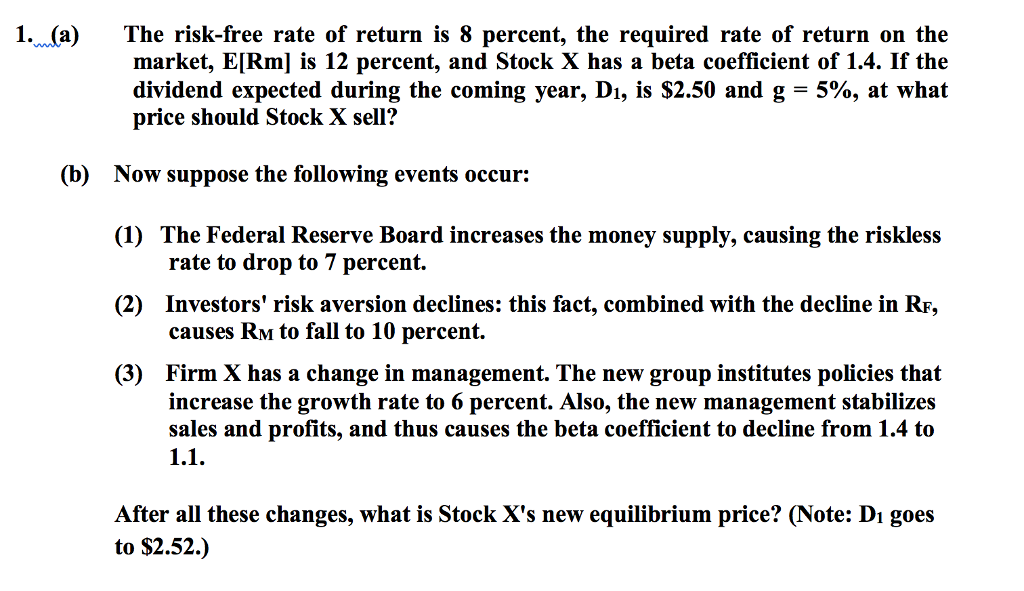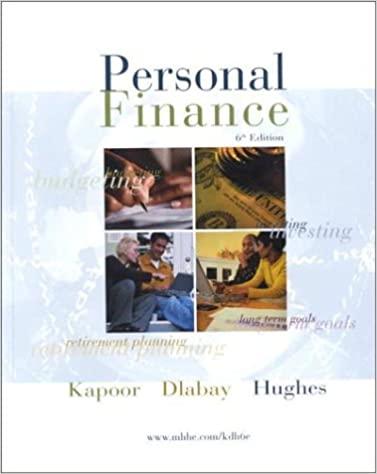Answered step by step
Verified Expert Solution
Question
1 Approved Answer
Please be specific, answer all parts step by step, and show the formula you use. Thank you! 1. (a) The risk-free rate of return is
 Please be specific, answer all parts step by step, and show the formula you use. Thank you!
Please be specific, answer all parts step by step, and show the formula you use. Thank you!
Step by Step Solution
There are 3 Steps involved in it
Step: 1

Get Instant Access to Expert-Tailored Solutions
See step-by-step solutions with expert insights and AI powered tools for academic success
Step: 2

Step: 3

Ace Your Homework with AI
Get the answers you need in no time with our AI-driven, step-by-step assistance
Get Started


